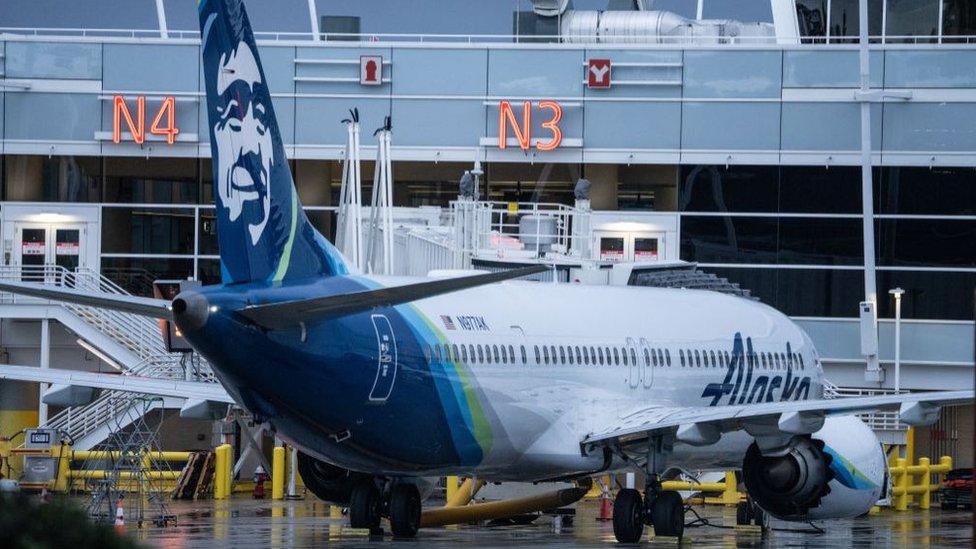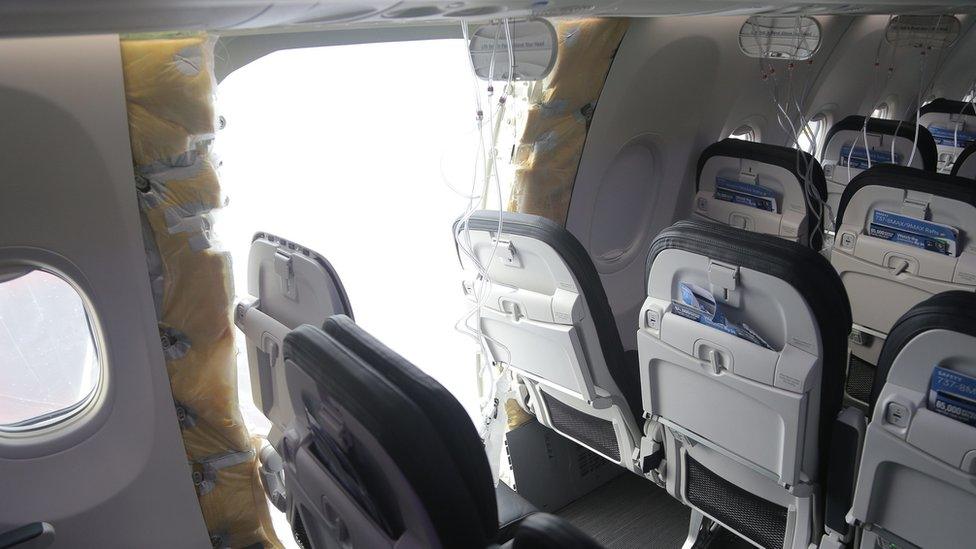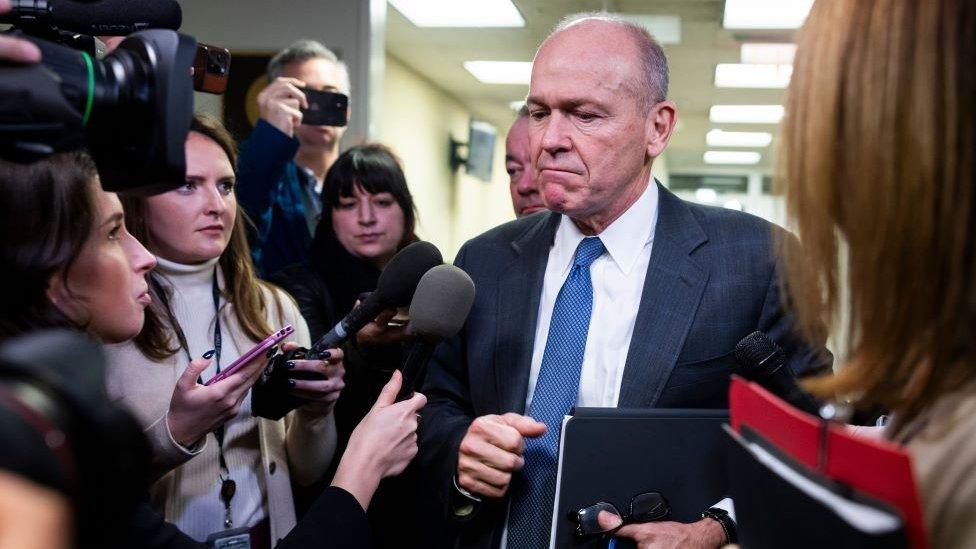Alaska Airlines warns of $150m Boeing blowout cost
- Published

Alaska Airlines says it is facing a $150m (£118m) hit, after the dramatic mid-air blowout of a panel on one of its planes this month.
The 5 Jan incident on a Boeing 737 Max 9 plane terrified passengers and prompted the Federal Aviation Administration (FAA) to ground 171 jets with similar designs.
Alaska had to cancel more than 3,000 flights in the wake of the incident.
It said it expected its travel to return to normal by early next month.
But it warned that growth would be lower than expected in the months ahead, as deliveries of new Boeing aircraft are likely delayed.
The FAA on Wednesday said the grounded Boeing planes could return to service if they have been inspected.
But Boeing's output has been capped, while the FAA investigates its manufacturing.
The troubles at the company, one of the world's two major plane-makers, are now spilling over to the rest of the industry.
United Airlines, another major 737 Max 9 customer, earlier this week said it was braced for delays in deliveries and looking at alternatives to Boeing as it plotted out aircraft orders.
It warned investors that it would lose money in the first quarter due to the incident.
Executives at Southwest and American, which are also reporting earnings this week, have also echoed the concerns about delayed aircraft and frustration with Boeing.
"Boeing needs to get their act together," American Airlines chief executive Robert Isom said.
Boeing for its part, has apologised for the disruption and pledged to work transparently and cooperatively with regulators.
Alaska Airlines had also faced questions from passengers, after it was revealed that the airline had restricted the jet involved in the accident from certain routes due to a pressure issue.
Chief executive Ben Minicucci said the problem was "totally unrelated". Speaking to financial analysts, he said passengers should feel confident in the safety of flying on its planes.
Mr Minicucci said he was having "tough" conversations with Boeing and would hold its "feet to the fire", but did not go so far as to threaten to cancel orders.
"We have a longstanding deep relationship," he said, noting that the company had been happy with the planes in the past.
Boeing has been struggling with a spate of smaller manufacturing issues in recent years, while trying to repair its reputation after fatal accidents in 2018 and 2019 - involving a different version of the 737 Max - killed 346 people.
Robert Mann, president of RW Mann & Company, an airline analysis and consulting firm in New York, said airlines used to have staff on hand to oversee more of the manufacturing process, but that they had scrapped that practice in recent decades in a drive to cut costs.
"As upset as these airlines are - and you can understand why they would be - they don't exactly have clean hands," he said.
Now, with the industry dominated by just two big players - Boeing and European rival Airbus - they are in "a bit of a box", he added.
They don't "really have any alternative as a practical matter," he said.
- Published25 January 2024

- Published24 January 2024
